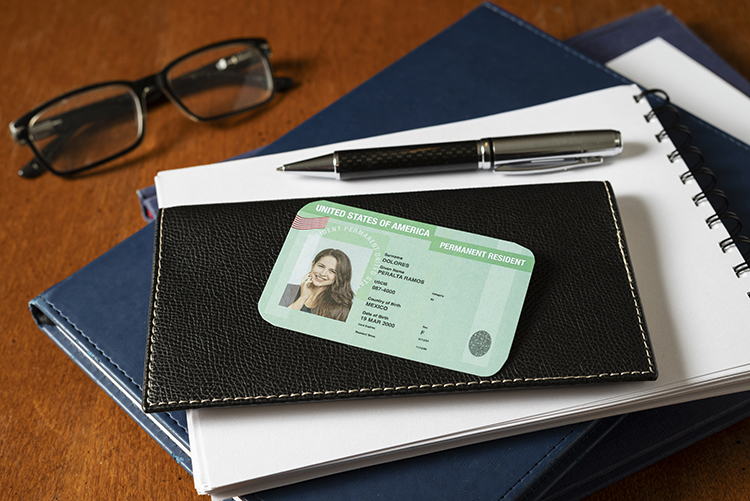
By: Ritu Chokshi
Under 8 U.S.C. § 1304(e), lawful permanent residents (LPRs) of the United States are required by law to carry their Green Card (Form I-551) at all times. The law states:
"Every alien, eighteen years of age and over, shall at all times carry with him and have in his personal possession any certificate of alien registration or alien registration receipt card issued to him … Any alien who fails to comply with these provisions shall be guilty of a misdemeanor and shall, upon conviction, be fined not to exceed $100 or be imprisoned not more than thirty days, or both."
This means that lawful permanent residents must carry their Green Card and present it when required by the authorities. While enforcement of this law is relatively rare, failure to comply could result in legal consequences.
Recent Immigration Trends and Advisory for Lawful Permanent Residents
1. Increased Scrutiny on Green Card Holders Traveling Abroad
· CBP officers at U.S. ports of entry have increased questioning of lawful permanent residents, particularly those who have spent extended time outside the U.S.
· LPRs who remain outside the U.S. for more than six months risk being questioned about whether they have abandoned their residency. Those who stay outside for one year or more without a reentry permit, are at risk of having their residency being deemed abandoned and will need to carry proof of ties to the U.S. on their return.
· Please note that all residents have a right to prove their ties to the U.S. and should not sign Form I-407 (Record of Abandonment of Permanent Resident Status) duress when attempting to re-enter as that form states that you are voluntarily abandoning your residency.
· When you have stayed outside of the U.S. for over a year, you have a right to see an immigration judge and only an immigration judge may revoke your residency after assessing your ties here.
· If planning extended travel, consider applying for a Reentry Permit (Form I-131) to preserve your residency.
2. Criminal Convictions Can Impact Status
· Certain crimes, including drug offenses, fraud, and domestic violence, can make a lawful permanent resident deportable.
· Even minor offenses, if classified as "crimes of moral turpitude," may result in immigration consequences.
· Consult an immigration attorney before pleading guilty to any criminal charges.
3. Delays in Green Card Renewals
· USCIS has reported processing delays for Green Card renewals (Form I-90), sometimes taking over a year.
· Receipt notices for pending renewals now serve as temporary proof of status for 24 months beyond the card's expiration date.
· Apply for renewal at least six months before expiration and carry the receipt notice if traveling.
4. Naturalization Backlogs and Eligibility Issues
· Many LPRs are facing delays in Form N-400 (naturalization applications) due to increased scrutiny over past travel, tax filings, and criminal history.
· USCIS has increased requests for evidence (RFEs), particularly for individuals with long absences from the U.S.
· If eligible, apply for U.S. citizenship as soon as possible to secure full rights and avoid changes in immigration law that could affect LPR status.
Conclusion
It is essential for all lawful permanent residents to make sure they are aware of and compliant with any new or updated rules and regulations. The Chugh, LLP immigration team will continue to monitor the situation and provide updates as they become available. For case specific questions or concerns, contact your immigration attorney.

© 2026 Chugh LLP Affiliate Network. All Rights Reserved